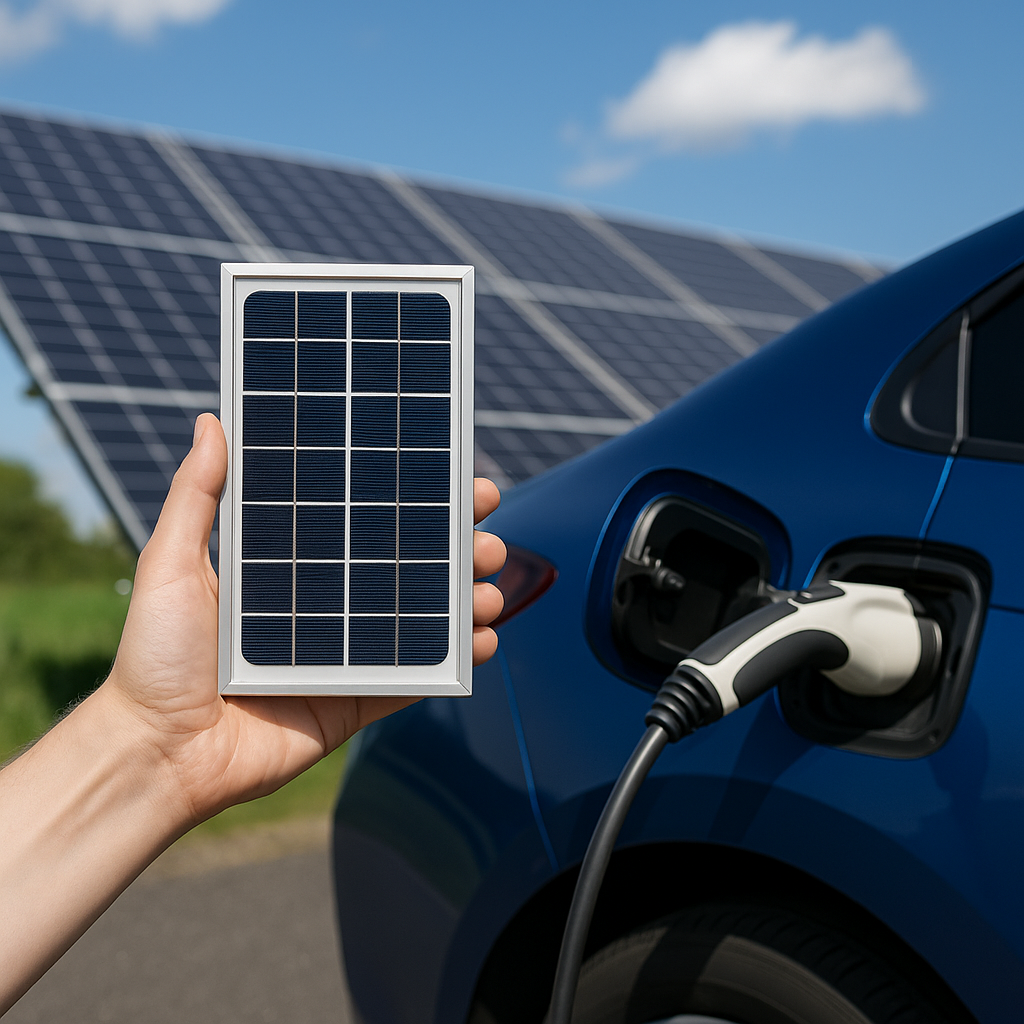With the rise of electric vehicles (EVs), more homeowners are asking: can I use solar panels to power my car? The short answer is yes — and it’s a great way to save on both fuel and electricity. But how many panels do you actually need to charge an EV at home? In this blog, we’ll break down the key factors that affect solar charging and help you understand what kind of setup makes sense for your situation.

How much energy does an EV need?
On average, an electric vehicle uses about 30 kWh (kilowatt-hours) of electricity to travel 100 miles. That means if you drive 1,000 miles a month, your EV would need roughly 300 kWh per month in additional electricity — just to charge.
How much energy do solar panels produce?
Each residential solar panel typically produces between 1.5 to 2 kWh per day depending on its wattage and local sun exposure. That’s around 45 to 60 kWh per month per panel. So if your EV needs 300 kWh/month, here’s the math:
- 5 to 7 panels are generally needed to fully charge your EV, depending on your driving habits and local climate.
What affects the number of panels you need?
- Your daily mileage: The more you drive, the more energy you’ll need to generate.
- Local sunlight hours: States with more sun (like New Jersey or Maryland) require fewer panels to hit the same energy goals than cloudy areas.
- Panel efficiency: Higher-efficiency panels produce more power in less space.
- System losses: Inverter and battery storage systems can reduce overall efficiency by 10–20%.
Can you charge your car with solar at night?
Solar panels generate power during the day, so you can’t charge directly at night. However, with a battery storage system like the Tesla Powerwall or similar, you can store solar energy from the day and use it later to charge your EV overnight — when rates are often higher under TOU billing.
Do you need a separate system for your EV?
Nope. In most cases, your solar system can be designed to meet your full household needs, including EV charging. When planning a new system, just let your solar provider know you want to factor in EV usage — they’ll size it accordingly.
Benefits of charging your EV with solar
- Lower fuel costs: Charging with solar is significantly cheaper than paying for gas — or even utility electricity in many areas.
- Stable energy pricing: Lock in your energy rate with solar and avoid future hikes in electricity or gas prices.
- Clean energy: You’ll be driving on sunshine instead of fossil fuels.



































